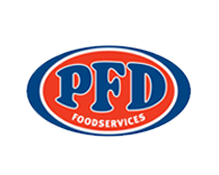Decision Trees
Decision Trees: Decision trees are a type of machine learning algorithm that are used to predict the outcome of a given input.
The decision tree is a powerful tool used in data analysis and machine learning to help determine the best path forward. It can be used for predicting outcomes, making decisions, and analysing complex problems. Through its structure and practical application, it has become an important part of many businesses' operations. This article will discuss the basics of decision trees – their structure, how they work, and why they are so useful.
The decision tree begins by identifying a series of variables that could affect the outcome of a problem or task. Each variable is then assigned weights according to its importance in determining the desired result; those with greater weight will influence the outcome more than those with less weight. With these values established, the process proceeds through each branch until reaching a final conclusion based on all available information.
Decision trees offer numerous advantages over traditional methods of data analysis and problem-solving. Unlike linear models which focus solely on one factor at a time, decision trees allow multiple factors to be taken into account simultaneously while still providing clear results. Additionally, since they can quickly analyse large datasets they are ideal for use in real-time applications such as medical diagnosis or fraud detection. Ultimately, this makes them an invaluable asset for any organisation looking to make sense of complicated situations and make better decisions faster.
What Is Decision Tree And Example?
Decision trees are a popular tool in machine learning and data analytics that allow for the classification of large datasets. This type of tree model is based on expected values, which are used to assess a decision’s outcome before it is taken. A decision tree consists of nodes that contain an attribute or feature, each with its own branch extending from the node indicating possible outcomes. The branches continue until all decisions have been made and the most likely result can be determined.
The performance of a classification tree depends upon accurate prediction accuracy as well as pruning algorithms that reduce complexity while maintaining accuracy levels. For instance, if there is too much noise in the data set, then the algorithm must be able to identify relevant features without over-fitting the data set. Furthermore, because decision trees are prone to over-fitting due to their hierarchical structure, they need to be carefully optimised so that only meaningful relationships remain within the model. As such, various methods like entropy-based splitting criteria, cost complexity pruning, early stopping rules and bagging can be applied during training of a decision tree model to improve its predictive performance and generalisation ability.
When properly constructed, decision trees can provide reliable insights into complex problems by creating models that accurately classify different elements from a dataset. Through leveraging powerful pruning techniques and optimising hyper-parameters accordingly one can build efficient models capable of identifying factors associated with specific outcomes in order to inform future decisions about similar scenarios.
What Are Decision Trees Used For?
Decision trees are a powerful tool used in many areas of data science. This type of model is based on the concept of information gain, which looks at how much additional knowledge can be obtained from splitting a dataset into two or more subsets. The root node acts as the starting point for each decision tree and it branches out through successive splits until leaf nodes are reached. These leaf nodes then represent the final decisions or classifications that were made by the model.
The use of decision trees is widespread due to their ability to accurately predict outcomes with minimal effort. They can also provide insights into underlying relationships between variables that would otherwise remain hidden within larger datasets. For example, they have been successfully used in applications such as mean squared error minimisation, recursive partitioning, random forests and positive predictive value estimation. Decision trees have even been applied to fields such as classification and regression problems where results are expressed via a confusion matrix or other form of tree structure.
Data scientists continue to leverage these models in order to obtain accurate predictions while controlling computational costs; this makes them an attractive option when dealing with large datasets that may require complex processing techniques. Furthermore, because decision trees do not rely heavily on assumptions about distributions, they tend to work well regardless of whether or not data has nonlinear characteristics.
What Are The Types Of Decision Tree?
Decision trees are a type of machine learning algorithm used to identify patterns within data. The decision tree model is based on the idea that data can be organised into distinct branches, with each branch representing decisions and their associated outcomes. This can be useful for predicting future events or understanding how certain variables interact with one another. There are various types of decision trees which vary in terms of the techniques used for constructing them and the rules they use to make predictions.
The most common type of decision tree is called Decision Tree Learning (DT). DT uses classification rules to determine which classes an outcome belongs to by looking at its features, such as age, gender, etc. These classifications are then used as nodes in the tree structure. Each node has two possible outcomes: “yes” or “no” depending on whether it meets certain criteria. A probability model is also employed in order to calculate the conditional probability of an event occurring given its preceding conditions.
Another type of decision tree is called Regression Trees (RT) which are designed to predict continuous values rather than discrete ones like DT does. RTs employ a loss function known as log-loss instead of a traditional accuracy metric, while they also measure the goodness-of-fit using metrics such as Gini impurity – this measures how "pure" each leaf node is after splitting a total number of observations between different classes. By combining these two models together we obtain more powerful predictive models capable of handling large datasets and making accurate predictions even when other methods fail due to limited data or information bias.
Is The Decision Tree AI Or Ml?
The decision tree is a type of artificial intelligence (AI) and machine learning (ML). It is an algorithm that uses child nodes, or branches, to create decisions based on desired outcomes. The overall algorithm works by creating a series of possible outcomes from the leaf count at each node in the decision tree. These outcomes are then evaluated for accuracy using classification error analysis.
When working with complex decision trees, it's important to consider the number of decision nodes and rules involved. For example, if there are many levels of complexity within an AI system, more decision nodes and rules may be needed. Additionally, as part of the decision tree analysis process, it is also necessary to determine which types of data should be used to make decisions and how those decisions will be implemented into actionable steps.
Decision tree AI and ML provide advantages over traditional methods due to their ability to quickly evaluate large amounts of data while minimising risk associated with incorrect decisions. By analysing individual elements within a dataset, these algorithms can identify trends and patterns that can inform better-informed business decisions. Furthermore, they offer scalability options when dealing with ever-changing datasets, making them particularly useful for predictive analytics applications such as fraud prevention.
What Are The Two Types Of Decision Trees?
Decision trees are a type of Artificial Intelligence (AI) or Machine Learning (ML) model that is used for making decisions. They involve the use of training data, which is then used to create an optimal decision tree that can be applied in various situations. The two types of decision trees are Categorical Trees and Boolean Logic Trees.
Categorical Trees make use of categorical variables such as yes/no questions to arrive at a conclusion. This allows them to process complex information quickly and accurately, while also providing advantages over alternatives like linear regression models. The leaf node of a categorical tree contains the final outcome of the decision-making process, which provides a clear model of decisions made by humans.
Boolean Logic Trees rely on boolean logic – true/false statements – to reach a decision based on multiple factors and conditions. These trees provide an organised way for processing large amounts of data with accuracy and efficiency, thus eliminating redundant data entries from consideration when forming conclusions. Pruning decision trees is another technique available for optimising performance; this involves removing branches from the tree that do not contribute significantly towards arriving at accurate outcomes. Random Decision Forest Frameworks have also been developed recently as advanced solutions for dealing with complex ML problems involving decision trees.
These two types of decision trees offer different approaches to solving AI or ML issues, each having its own set of benefits depending upon the situation and requirements. Depending on the scope and complexity of a problem, one type may be more suitable than another, but both can generally be relied upon for getting more detailed insights into how best to manage any given scenario efficiently and effectively through their structured approach to extracting meaningful patterns from datasets.
Conclusion
Decision trees are a powerful tool for data analysis, capable of making decisions based on the input of information. Decision trees can be used to predict outcomes and make intelligent decisions without relying on human intuition or experience. These decision trees come in two main varieties: classification tree and regression tree. Classification tree is used when there is a categorical target variable while regression tree is used when the target variable is continuous. Both types of decision trees have been widely utilised in artificial intelligence (AI) and machine learning (ML).
The advantage of using decision trees compared to other methods lies in its ability to identify relationships between multiple variables at once, particularly those that involve non-linear patterns. By constructing an appropriate structure, decision trees can effectively handle large amounts of data with high accuracy rates. Moreover, they can also provide insight into how different factors interact with each other which helps humans understand complex problems better.
In conclusion, decision trees offer significant advantages over other techniques for making predictions and extracting meaningful insights from data. They are able to capture both linear and non-linear patterns within data efficiently and accurately while providing valuable interpretability as well. For these reasons, decision trees remain an essential component of AI/ML algorithms today.
PREVIOUS NARROW AI GLOSSARY TERM
NEXT NARROW AI GLOSSARY TERM
Decision Trees Definition
Exact match keyword: Decision Trees N-Gram Classification: Decision Tree Algorithms, Decsion Tree Induction Substring Matches:Decision, Trees Long-tail variations:"Decision Tree Algorithm", "Decsion Tree Induction", "Classification Trees" Category: Computers, Technology Search Intent: Learn, Solutions Keyword Associations: Classification, Learning, Modeling Semantic Relevance: Machine Learning, Supervised Learning, Algorithms Parent Category: Computers Subcategories: Machine Learning, Supervised Learning, Algorithms Synonyms: Classification ,Learning ,Modeling Similar Searches :Machine Learning ,Supervised Learning ,Algorithms Geographic Relevance :Global Audience Demographics :Developers ,Computer Science Students , Researchers Brand Mentions :Applied AI Course. IBM Watson. Industry-specific data : C4.5 algorithm , ID3 algorithm Commonly used modifiers :"Algorithm", "Induction", "Modeling" Topically relevant entities :Machine Learning ,Supervised Learning ,Algorithms ,C4 . 5 algorithm.ID3 algorithm."Larry will be our digital expert that will enable our sales team and add that technological advantage that our competitors don't have."
Kerry Smith
CEO, PFD Foods
$1.6 billion in revenue 
"Lion is one of Australasia’s largest food and beverage companies, supplying various alcohol products to wholesalers and retailers, and running multiple and frequent trade promotions throughout the year. The creation of promotional plans is a complicated task that requires considerable expertise and effort, and is an area where improved decision-making has the potential to positively impact the sales growth of various Lion products and product categories. Given Complexica’s world-class prediction and optimisation capabilities, award-winning software applications, and significant customer base in the food and alcohol industry, we have selected Complexica as our vendor of choice for trade promotion optimisation."
Mark Powell
National Sales Director, Lion
"At Liquor Barons we have an entrepreneurial mindset and are proud of being proactive rather than reactive in our approach to delivering the best possible customer service, which includes our premier liquor loyalty program and consumer-driven marketing. Given Complexica’s expertise in the Liquor industry, and significant customer base on both the retail and supplier side, we chose Complexica's Promotional Campaign Manager for digitalizing our spreadsheet-based approach for promotion planning, range management, and supplier portal access, which in turn will lift the sophistication of our key marketing processes."
Richard Verney
Marketing Manager
Liquor Barons

"Dulux is a leading marketer and manufacturer of some of Australia’s most recognised paint brands. The Dulux Retail sales team manage a diverse portfolio of products and the execution of our sales and marketing activity within both large, medium and small format home improvement retail stores. We consistently challenge ourselves to innovate and grow and to create greater value for our customers and the end consumer. Given the rise and application of Artificial Intelligence in recent times, we have partnered with Complexica to help us identify the right insight at the right time to improve our focus, decision making, execution, and value creation."
Jay Bedford
National Retail Sales Manager
Dulux

"Following a successful proof-of-concept earlier this year, we have selected Complexica as our vendor of choice for standardizing and optimising our promotional planning activities. Complexica’s Promotional Campaign Manager will provide us with a cloud-based platform for automating and optimising promotional planning for more than 2,700 stores, leading to improved decision-making, promotional effectiveness, and financial outcomes for our retail stores."
Rod Pritchard
Interim CEO, Metcash - Australian Liquor Marketers
$3.4 billion in revenue 
"After evaluating a number of software applications and vendors available on the market, we have decided to partner with Complexica for sales force optimisation and automation. We have found Complexica’s applications to be best suited for our extensive SKU range and large set of customers, being capable of generating recommendations and insights without burdening our sales staff with endless data analysis and interpretation.
Aemel Nordin
Managing Director, Polyaire
"DuluxGroup is pleased to expand its relationship with Complexica, a valued strategic partner and supplier to our business. Complexica’s software will enable DuluxGroup to reduce the amount of time required to generate usable insights, increase our campaign automation capability, personalise our communications based on core metrics, and close the loop on sales results to optimise ongoing digital marketing activity."
James Jones
Group Head of CRM, DuluxGroup
"Instead of hiring hundreds of data scientists to churn through endless sets of data to provide PFD with customer-specific insights and personalised recommendations, Larry, the Digital Analyst® will serve up the answers we need, when we need them, on a fully automated basis without the time and manual processes typically associated with complex analytical tasks.”
Richard Cohen
CIO, PFD Foods
$1.6 billion in revenue 
"As a global innovator in the wine industry, Pernod Ricard Winemakers is always seeking ways to gain efficiencies and best practices across our operational sites. Given the rise of Artificial Intelligence and big data analytics in recent times, we have engaged Complexica to explore how we can achieve a best-in-class wine supply chain using their cloud-based software applications. The engagement is focused on Australia & New Zealand, with a view to expand globally."
Brett McKinnon
Global Operations Director, Pernod Ricard Winemakers
"70% - 80% of what we do is about promotional activity, promotional pricing -- essentially what we take to the marketplace. This is one of the most comprehensive, most complex, one of the most difficult aspect of our business to get right. With Complexica, we will be best in class - there will not be anybody in the market that can perform this task more effectively or more efficiently than we can."
Doug Misener
CEO, Liquor Marketing Group
1,400+ retail stores 
"The key thing that makes such a difference in working with Complexica is their focus on delivering the business benefits and outcomes of the project."
Doug Misener
CEO, Liquor Marketing Group
1,400+ retail stores 
"Australia needs smart technology and people, and it has been a great experience for me to observe Complexica co-founders Zbigniew and Matt Michalewicz assemble great teams of people using their mathematical, logic, programming, and business skills to create world-beating products. They are leaders in taking our bright graduates and forging them into the businesses of the future."
Lewis Owens
Chairman of the Board, SA Water 
"Having known the team behind Complexica for some years ago now, I am struck by their ability to make the complex simple - to use data and all its possibilities for useful purpose. They bring real intelligence to AI and have an commercial approach to its application."
Andrew McEvoy
Managing Director, Fairfax Media - Digital 
"I have worked with the team at Complexica for a number of years and have found them professional, innovative and have appreciated their partnership approach to delivering solutions to complex problems."
Kelvin McGrath
CIO, Asciano 
“Working with Complexica to deliver Project Automate has been a true partnership from the initial stages of analysis of LMG’s existing processes and data handling, through scoping and development phase and onto delivery and process change adoption. The Complexica team have delivered considerable value at each stage and will continue to be a valued partner to LMG."
Gavin Saunders
CFO, Liquor Marketing Group 
“Complexica’s Order Management System and Larry, the Digital Analyst will provide more than 300 Bunzl account managers with real-time analytics and insights, to empower decision making and enhanced support. This will create more time for our teams to enable them to see more customers each day and provide the Bunzl personalised experience.”
Kim Hetherington
CEO, Bunzl Australasia 
"The team behind Complexica develops software products that are at the cutting edge of science and technology, always focused on the opportunities to deliver a decisive competitive edge to business. It has always been a great experience collaborating with Matthew, Zbigniew and Co."
Mike Lomman
GM Demand Chain, Roy Hill Iron Ore 
"The innovations that the Complexica team are capable of continue to amaze me. They look at problems from the client side and use a unique approach to collaborating with and deeply understanding their customers challenges. This uniquely differentiates what they bring to market and how they deliver value to customers."
John Ansley
CIO, Toll Group 
"Rather than building out an internal analytics team to investigate and analyse countless data sets, we have partnered with Complexica to provide our sales reps with the answers they need, when they need them, on a fully automated basis. We are excited about the benefits that Larry, the Digital Analyst will deliver to our business.”
Peter Caughey
CEO, Coventry Group 
“Complexica’s Order Management System and Larry, the Digital Analyst will provide more than 300 Bunzl account managers with real-time analytics and insights, to empower decision making and enhanced support. This will create more time for our teams to enable them to see more customers each day and provide the Bunzl personalised experience.”
Kim Hetherington
CEO, Bunzl Australasia 
"After an evaluation process and successful proof-of-concept in 2016, we have chosen to partner with Complexica to upgrade the technological capability of our in-field sales force. The next-generation Customer Opportunity Profiler provided by Complexica will serve as a key tool for sales staff to optimise their daily activities, personalise conversations and interactions with customers, and analyse data to generate actionable insights."
Stephen Mooney
Group Sales Capability Manager, DuluxGroup
$1.7 billion in revenue
"After evaluating a number of software systems available in the marketplace, we have ultimately selected Complexica as our vendor of choice for sales force automation and CRM. Given the large SKU range we carry and very long tail of customers we serve, Complexica’s applications are best suited to deal with this inherent complexity without burdening our staff with endless data entry."
Nick Carr
CEO, Haircaire Australia
Australia's largest distributor of haircare products
“Asahi Beverages is Australia’s largest brewer, supplying a leading portfolio to wholesalers and retailers, including some of Australia’s most iconic brands. Last year Asahi Beverages acquired Carlton & United Breweries, which is its Australian alcohol business division. To harness the strength of our expanded portfolio, we partner with our customers to run multiple and frequent trade promotions throughout the year, delivering long-term growth for both our business and theirs. Given the inherent complexity in optimising promotional plans and our continued focus on revenue and growth management, we have selected Complexica as our vendor of choice after a successful Proof-of-Concept of its world-class optimisation capabilities.”
Kellie Barnes
Group Chief Information Officer
Asahi Beverages
"Dulux is a leading marketer and manufacturer of some of Australia’s most recognised paint brands. The Dulux Retail sales team manage a diverse portfolio of products and the execution of our sales and marketing activity within both large, medium and small format home improvement retail stores. We consistently challenge ourselves to innovate and grow and to create greater value for our customers and the end consumer. Given the rise and application of Artificial Intelligence in recent times, we have partnered with Complexica to help us identify the right insight at the right time to improve our focus, decision making, execution, and value creation."
Jay Bedford
National Retail Sales Manager, DuluxGroup
"At Liquor Barons we have an entrepreneurial mindset and are proud of being proactive rather than reactive in our approach to delivering the best possible customer service, which includes our premier liquor loyalty program and consumer-driven marketing. Given Complexica’s expertise in the Liquor industry, and significant customer base on both the retail and supplier side, we chose Complexica's Promotional Campaign Manager for digitalizing our spreadsheet-based approach for promotion planning, range management, and supplier portal access, which in turn will lift the sophistication of our key marketing processes."
Richard Verney
Marketing Manager, Liquor Barons































